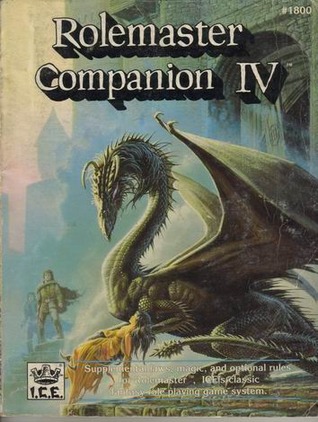The way our gaming group is set up is that we are a group of five that meet regularly and when we meet we normally play two games, both Rolemaster. Up until recently that has been one Shadow World and one Faerun/Forgotten Realms.
When we next get together to play; the Shadow World game should come to an end as we are about to take on the ultimate bad guy and either save the world or die trying with no other options on the cards.
What this means is that we need a new game and it is someone else’s turn to GM. As it happens the new GM has not game mastered Rolemaster for many years (in fact his rule books are so old his spell law is printed in a hand written style font in blue ink, what was going on with that?). What we are doing is taking the opportunity to go through ever single companion and every single optional rule and skill and between us trying to unify exactly what options we are using.

One of the nicest features of all the Rolemaster Companions after Companion IV is that they contain a couple of pages of tick lists with all the optional rules and how important that option is, whether it is considered a core rule now, is it highly recommended, does it add a lot of complexity to the game and so on. As two separate GMs we can complete the tick lists apart, see what is the same and then look at where we diverge and discuss those particular rules.
I think this is a brilliant concept of not only identifying every rule and where to find it but also how important the game designers felt each rule was. I am a bit of a miserable git at times and think that every optional rule I introduce has to add something substantial to the game, to pay its way so to speak.
The framework we create in the coming months will probably be our default game now for the next ten years unless I can convince them all to do a Rolemaster Unified Beta II play test.
Watch this space.
